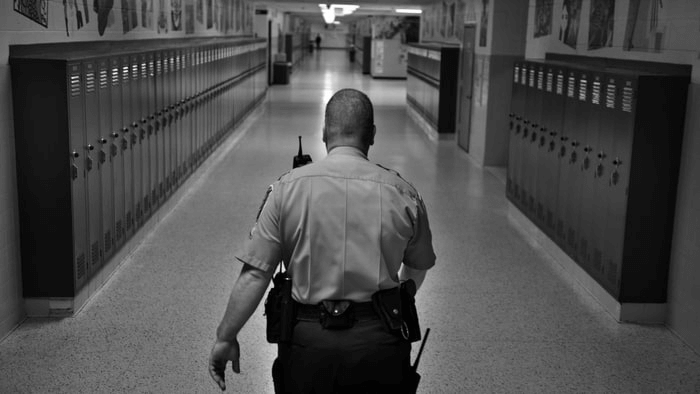For decades, partnerships between school districts and law enforcement have aimed to make schools safer and more secure. However, the complicated and evolving relationship between schools and police in districts across Colorado has many reconsidering what role, if any, police should play in student discipline and school safety.
Rose Community Foundation recently hosted a participatory virtual convening around rethinking discipline and safety in Colorado public schools. During the event, panelists unveiled new district- and state-level reports about school justice and engaged K-12 education leaders from across the state to consider one overarching question: what is schoolwork and what is police work?
Data about school discipline indicates that student punishment is often not administered evenly. During the 2018-19 academic year, Black students in Colorado accounted for ten percent of all school-based arrests or citations despite comprising only five percent of the statewide student population. Students of color are also more likely to be expelled or suspended – and for longer – than their white counterparts. These inequitable outcomes perpetuate a phenomenon known as the school-to-prison pipeline, with those who receive exclusionary discipline in school more likely to end up in the juvenile justice system.
The convening connected district leaders and school board members to discuss how their roles enable them to shift school- and district-level policy and practice. Attendees’ positions’ range from school board members and superintendents to senior policy, legal and operations professionals, and they represent districts from across Colorado, each with unique approaches to student safety and discipline. The demographic, geographic and ideological diversity of the attendees helped to generate thoughtful and robust conversation.
Participants were joined throughout the convening by a dynamic slate of local, state and federal leaders, who shared new findings on the relationship between schools and law enforcement and detailed policy efforts to improve related systems and practices.
First, Aurora Public Schools (APS) Superintendent Rico Munn and Rangeview High School Principal Lisa Grosz spoke from a school- and district-level perspective, detailing APS’ recent efforts to redesign its long-standing relationship to the Aurora Police Department (APD). They fielded questions about a new case study, which tracks improvements in student success and feelings of safety since the two parties reassessed their partnership in 2014. The study, which was developed on behalf of and funded by Rose Community Foundation, recommends improving mental-health supports for students, elevating student voices and involving them in Student Resource Officer (SRO) training and evaluation, and incorporating reviews of teacher and school reliance on calls to APD.
Next, US Senator Michael Bennet discussed emerging federal efforts to disincentivize punitive school discipline practices and encourage more restorative alternatives. A former superintendent at Denver Public Schools, Senator Bennet emphasized the importance of centering district leaders and teachers in conversations about education policy. He also solicited input from attendees on potential federal legislation to transition schools away from an overreliance on SRO-administered discipline.
Colorado Attorney General Phil Weiser then spoke about a new report from his office around improving policies and practices to address the school-to-prison pipeline. The report endorses the growing tide of restorative practices and community-based student support programs, and also recommends enhancing discipline-related data collection and improving SRO training and utilization in order to cultivate “frameworks of caring and support.” Attorney General Weiser stressed that school discipline should aim to avoid entanglement with the criminal justice system for disciplinary situations that do not require a criminal action.
The spectrum of perspectives and approaches shared by the convening’s speakers and attendees underscores that there are several paths toward improving school safety and discipline and addressing the school-to-prison pipeline. We hope these new reports, as well as the policy efforts being advanced at the state and federal level, help schools and districts throughout Colorado reevaluate how they can most effectively navigate these issues and advance more equitable, just and inclusive education systems.
Rose Community Foundation has long been committed to advancing innovative, long-term solutions to improve educational equity and close the achievement gap for all learners. As more districts in the Greater Denver region and across the state continue advancing changes aimed at improving school and police partnerships, we are interested in learning about how we can be most supportive. To share feedback about how we can help deepen and advance policy and advocacy efforts in your community, please reach out to Janet Lopez, the Foundation’s director of policy and advocacy.
Thank you to the team at the Colorado Education Initiative (CEI) for their support planning and facilitating the convening. CEI works to cultivate systems improvement and equity in K-12 education and has been at the forefront of improvement, innovation and change in Colorado’s public education system for over a decade.

